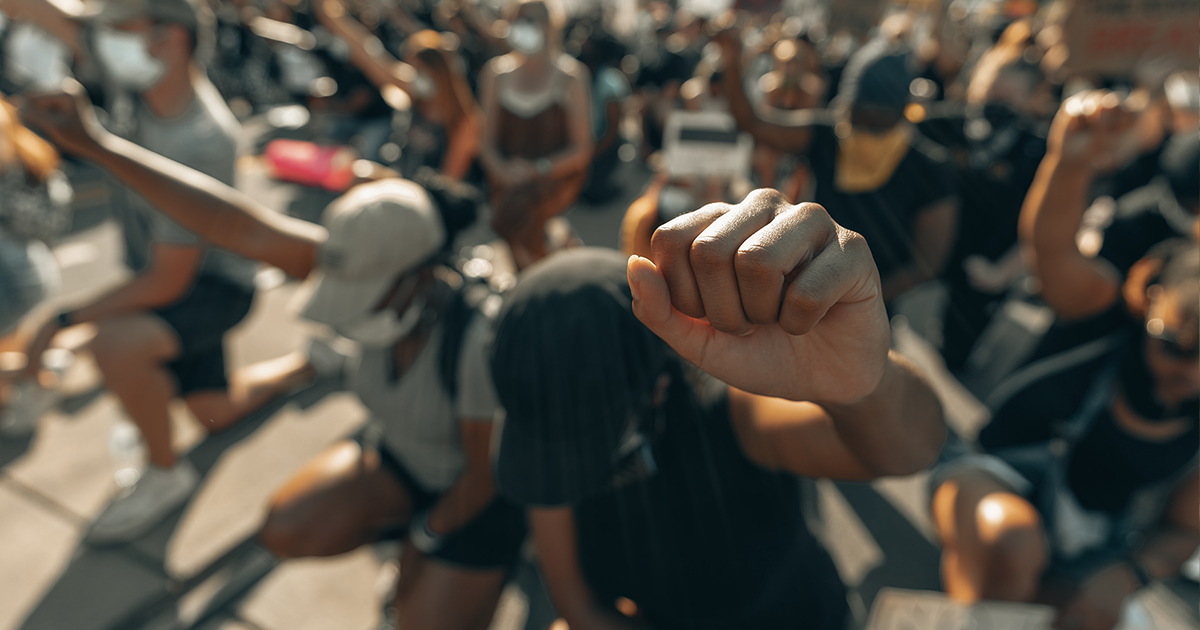It has been a tough few years, hasn’t it?
We’re now 2 months into year 3 of layer upon layer of difficulty, appearing in fits and starts. Every day is a new day to figure out a new way to cope. To figure out a new way to keep our heads above water. To figure out how to live to see another day. Literally.
For the sake of my own mental well-being, I have to believe hope is on the horizon. I very much want to believe the worst of the pandemic is behind us.
What’s that you say? Just another example of toxic positivity? Of ignoring reality as a method to cope? Well, I assure you, I’ve seen the headlines and notifications. I realize it’s still a hot mess out there.
Subvariants. Reinfections. Carjackings. Division. Injustice. Extreme weather. Uncertainty. Fear. I’m aware. Yet, I’m still hopeful. Because for me, hope, in whatever morsel I can find it, is the antidote to fear. Hope gets me out of bed. Hope gets me in front of a screen and into a pair of fuzzy socks. Like whispers of steam rising from my morning tea, hope reminds me that brighter, happier days will rise again.
Hope doesn’t dismiss the losses so many of us have suffered. It doesn’t fill the empty seat. Or mend the broken heart. Or replace the sense of security and wholeness we may have once known. Yet, in the shadow of heartache, any positive news is enough for me to believe we can, at some point, fashion adversity into a better day. And for me, Black History Month is an opportunity to reflect on that.

Achieve your mental wellness goals
AbleTo programs give you 24/7 access to tools, activities, and content tailored to your needs. Sign up or log in to start exploring.

Reverend Dr. Martin Luther King, Jr. is top of mind. (Not what you think. Keep reading.) King faced the tumult of the 1960s with courageous tenacity so that all Americans could claim civil rights, equally.
King was awarded the Nobel Peace Prize in 1964. Three years later he nominated his friend and fellow non-violent activist Thich Nhat Hanh, a Vietnamese Buddhist Monk who died in 2022 at age 95. King and Thich Nhat Hanh were united in their stance against the Vietnam War. King said he believed awarding Thich Nhat Hanh the Nobel Peace Prize would revive hope for “justice and harmony.” No prize was given in 1967. But King’s gracious nomination letter pierced the darkness of the day. It painted a vision of a more peaceful, hopeful world.
“Freedom is not given to us by anyone; we have to cultivate it ourselves. It is a daily practice. No one can prevent you from being aware of each step you take or each breath in and breath out.”
— Thich Nhat Hanh
There are also lesser-known heroes. Everyday folk who demonstrated the sheer force of the human spirit. Their ability to face the dark while trusting in the light also gives me hope. Because sometimes looking back reminds us of the possibility of what could be moving forward.
Stories of women like Septima Poinsette Clark, a schoolteacher and civil rights activist who fought against racism and sexism. Barred from teaching in Charleston, South Carolina public schools because she was Black, Clark eventually took a job at the Avery Normal Institute, a Black private school from which she herself had graduated.
In 1919, Clark and her students helped the local chapter of the National Association for the Advancement of Colored People (NAACP) challenge the law prohibiting Black teachers from working in Charleston’s public schools. Going door to door, they gathered ~10,000 petition signatures. The law was overturned a year later.
In 1945, Clark worked with the NAACP and lawyer and civil rights activist Thurgood Marshall to secure pay equity for Black teachers in Columbia, South Carolina. Her salary tripled as a result.
In the 1960s, Clark joined the Southern Christian Leadership Conference as its director of education and teaching. During her time there, Clark launched more than 800 citizenship schools. These schools taught math and literacy skills, among other things. As a result, once-disenfranchised Black people were now able to pass voter registration literacy tests and vote.
Clark spent her life pushing past derisive ‘isms’ to stress education’s ability to lift and empower. In 1979, President Jimmy Carter honored her with a Living Legacy Award.
And then there’s Charles Hamilton Houston. The grandson of an enslaved person, Houston served as a U.S. First Lieutenant in World War I. The racial bigotry he endured during this time would shape his life. After the war, Houston studied at Harvard Law School. He became the first Black editor of the Harvard Law Review and graduated with honors in 1923.
Houston then worked to dismantle the “separate but equal” Jim Crow laws that fueled school segregation and racial housing covenants. He became dean of Howard University’s Law School and mentored a generation of young Black attorneys, including Thurgood Marshall. Yes, the same Marshall who fought alongside Septima Poinsette Clark. Marshall would go on to become the first Black Supreme Court Justice.
Houston became known as “The Man Who Killed Jim Crow.” Throughout his life, he drew on his first-hand experiences with injustice to drive positive change for himself and others.
Do you know the name Fritz Pollard? An All-American Brown University halfback, Pollard’s Ivy League football career was marred with racism. He was pelted with rocks and bottles from the stands. He was refused service on Pullman train cars. He was forced to stay in different hotels than his white teammates.
Yet, in 1916, Pollard became the first Black player to play in the Rose Bowl. And in 1921, he became the NFL’s first Black head coach. In 2005, nearly two decades after his death, Pollard was inducted into the Pro Football Hall of Fame. Though he stood a lithe 5’9,’’ 165 pounds during his university days, Pollard’s resilient legacy looms large even today.
“Breathe, smile and go slowly.” —Thich Nhat Hanh
From the moments of fatigue to the deep discouragement, I imagine how hard all of that must have been. The isolation. The encounters with fear. And yes, the hopelessness.
Yet, I can also imagine there were those who were willing to lend a hand and a reason not to give up.
Teachers and teammates. Activists and law clerks. A Baptist preacher and a Buddhist monk. Allies who clung to hope. Allies who clung to each other because they understood that during times of adversity, we’re better together.
The human spirit is a mighty force. My hope is that the stories we share during Black History Month will highlight the common threads of grit and grace that bind us all. Grit to keep it all together. And grace when it all seems to fall apart.
***
I want to leave you with one last thought: When tough times linger and the outlook seems bleak, it’s okay to pause and rest. It’s okay to go slow. It’s okay to seek support before you keep going.
You’ll get there. We’ll get there. One day. One hopeful step at a time.
Need some support?
AbleTo is here to help. From on-demand self care to virtual therapy and coaching, we make managing your mental wellness easy. Sign up and get the personalized support you deserve.
By Roxane Battle
Roxane Battle uses her gift of storytelling to make mental health care more relatable and accessible, especially among marginalized communities. Roxane spent over 20 years as a news anchor and Emmy-nominated reporter at NBC Minneapolis, CBS, and FOX. Roxane was named an Architect of Change on mariashriver.com and has been featured in Working Mother and Ebony magazines. Her self-help memoir, Pockets of Joy: Deciding to Be Happy, Choosing to Be Free (Whitaker House, 2017), became an Amazon bestseller in multiple categories.
Clinically reviewed by Hayley Quinn, PsyD.
Stock photo by Clay Bank/Unsplash. Posed by models.
The information featured on this site is general in nature. The site provides health information designed to complement your personal health management. It does not provide medical advice or health services and is not meant to replace professional advice or imply coverage of specific clinical services or products. The inclusion of links to other websites does not imply any endorsement of the material on such websites.


